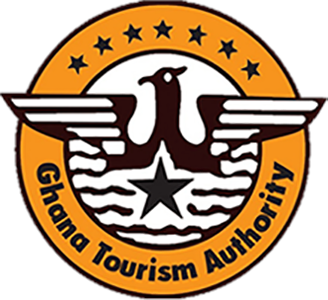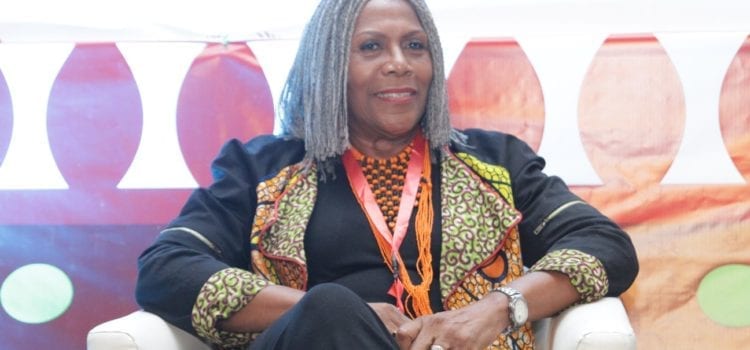Landtours, Ltd. is a tour company operating out of West Africa at a really bustling time for tourism in the area. 2019 marks what has been deemed the ‘Year of Return’ for people of African descent in the diaspora, a call to action that marks 400 years since the first slaves were kidnapped and sold into the Transatlantic Slave Trade. The ‘Year of Return’ calls for people in the African Diaspora to make a birthright trip “home” to West Africa.
With that in mind, Landtours is uniquely positioned to provide travelers with the immersive experiences they’re seeking on these journeys. Here, we talk to Landtours CEO Mona Boyd about what makes the company’s tours special and why the ‘Year of Return’ is so important for travelers and the countries that they’re exploring.
YOR Official Video
Travel Noire: What was the impetus to start Landtours?
Mona Boyd: My Ghanaian Husband and I, with our 18-month-old son moved to Ghana in 1993 and started an independent car rental company (now Avis Rent a Car). During the first year of providing car rental services, we noticed our customers frequently asked us to provide tour and destination management services for them. We would often be asked to make a hotel reservation in a tourist destination outside Accra, or to recommend a restaurant for a special occasion. The most common question was “my family is coming to visit me; what can I do with them?” After one year of giving free advice, we set up a tour and travel company called Landtours Ghana Ltd.
TN: You could’ve easily curated tours that highlight markets, safaris, and luxurious beaches. What made you choose immersive experiences?
MB: From my past experiences traveling throughout West Africa, I knew the region had so much more to offer than just museums, beaches and markets. I wanted to show the magnificent countries in which we operated to the world and in the very best light. I also wanted to debunk everything negative Americans, Europeans and others had learned about Africa. My team and I felt the only way to do this was to showcase the people and their culture, and to ensure that the traveler(s) had an up close, people-to-people cultural exchange experience. I felt that descendants of African slaves particularly needed to be welcomed back to Africa in the most sensitive manner.
I wanted African Americans to leave West Africa changed forever; with a deeper understanding of their heritage, identity, and of what happened to their Ancestors 400 years ago.

Tourists arriving for Pan-African Students Summit
TN: What are some challenges Landtours faced in its first years of operation? How did you adjust?
MB: I not only had all the challenges of getting two start-ups up and running in a country with almost no business infrastructure or service culture, I was also adjusting to a brutal culture shock. To be honest it was an overwhelming experience for the first three years. At the time we started our businesses, Ghana did not have a service industry, and there was very little knowledge about what service should look like.
How did I adjust? I was unrelenting about our standards, hired the smartest people I could find, and trained them to deliver the service our clients expected. My biggest breakthrough came when I realized I needed to stop expecting everyone to be like me and work like me. I leaned in more to better understand what was most important to Ghanaians. Through the change I made in my management style, I was slowly able to win employees trust.
TN: Which destination is currently most popular among Landtours travelers? Why do you think that is?
MB: Landtours’ Ghana, Togo and Benin Cultural Package are the most popular. Travelers have an opportunity to experience the people and culture of three different countries. Furthermore, they also experience the difference between an Anglophone Ghana and two Francophone countries; Togo and Benin. It is interesting to see how the British and French cultures have influenced the people and their institutions in all three countries.
TN: Which destination do you feel doesn’t get the shine it deserves? What should travelers know about it?
MB: About seven years ago we discovered Sao Tome and Principe, an off the beaten track group of Islands located off the Atlantic shore of Gabon. Sao Tome and Principe offer the closest experience I have had to be in the Garden of Eden. Everywhere you look are blossoming flowers, deep green foliage and everything about the Islands exude pure relaxation. The Islands have no high rise buildings, are not over-crowded, and there are very few cars on the road.
In addition to the stunning beauty of the islands, the people of Sao Tome and Principe have a very interesting story to tell. These beautiful, laid back and warm people are descendants of the captured Africans who were on the way to the Americas when they became shipwrecked and ended up on the Island of Sao Tome and Principe. The islands were colonized by the Portuguese, and the Africans on the ship ended up in slavery in Sao Tome. Like all slaves who were sent to the Americas, the people of Sao Tome and Principe have no tribal/ethnic identity. Although they descended from tribes of many places in West Africa, they identify themselves as people from Sao Tome and Principe.
TN: We know that the ‘Year of Return’ is of special significance for African Americans and others in the African diaspora, but what does it mean for the people of West Africa?
MB: There has been a lot of buzz in Ghana about the Year of Return, and I posed the question to ten Ghanaians of “What does the Year of Return mean to you?” The answers I received fell into three categories:
20 percent said that the Year of Return meant an opportunity to showcase Ghana’s culture and learn more about Ghana’s history. 20 percent said it meant Ghanaians will have an opportunity to learn more about their brothers and sisters in the Diaspora. 60 percent said that the Year of Return means a very good business opportunity for Ghanaians.
This is what I expected most Ghanaians would say about the “Year of Return.” Unlike African Americans, most Ghanaians do not articulate any emotions about the transatlantic slave trade. They know the slave trade took place, but do not feel it is about them.
TN: What do you hope travelers gain from being part of a Landtours experience?
MB: I hope travelers will have an experience that will ensure they learn, grow and be changed forever. I also hope that they will come to understand we are all connected and are far more similar than we are different. The colour of our skin, the shape of our body, or the texture of our hair is only about environmental adaptation. What makes us the same is our humanity, and we should celebrate our differences in its full glory.
TN: What’s the most fulfilling part of being at the helm at Landtours?
MB: I love, love, love what I do! But there are three things that I love the most: One, I love providing incredible experiences for travelers and exceeding their expectations. Two, I love working with intelligent young people and motivating, guiding and coaching them to discover their considerable talents, and just how much they are capable of doing. Third, I love being successful and winning every day. It gives me an incredible sense of pride and achievement
TN: What’s next for Landtours? What are your plans for the coming years?
MB: Currently we work in West Africa but our goal is to provide tours and travel services everywhere on the African Continent.
TN: What’s your last piece of advice for travelers new to West Africa?
MB: Come with an open mind and heart, and you will truly be touched by the wonderful people and cultures of Africa.


 Call Center
Call Center



Comments are closed.